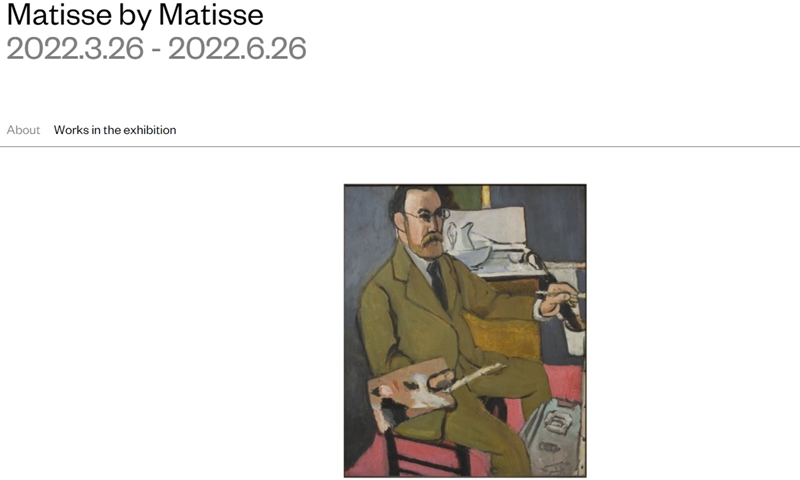ARTS / ART
Art exchanges should not be affected by politics

Photo: Screenshot of UCCA website
The fate of an exhibition of French artist Henri Matisse, set to open in March in Beijing and Shanghai, is up in the air after Christian Poiret, president of the Departmental Council of Nord, announced on Friday that the event was being canceled because of "political ties between China and Russia." The news left many fans of the artist in China disappointed and confused over the cancellation.
Art should never be held hostage by politics. Although artists come from certain countries, their masterpieces belong to humanity. For this reason, the French side should not hinder normal art exchanges between the two countries based on political reasons.
"So far, we have not received an official notice on the cancellation of the exhibition," an employee at the Ullens Center for Contemporary Art (UCCA), the organizer and host of the exhibition in China, told the Global Times on Monday.
The sale of tickets for the exhibition has been currently suspended.
Furthermore, cultural partnership between the Nord and Chinese cultural institutions will be suspended until further notice, local media reported.
The Matisse pieces on the exhibition are part of the collection of an art gallery in Le Cateau-Cambrésis in northern France. The gallery had originally agreed to collaborate with the UCCA to display the pieces while it underwent renovation. The artworks were to be shipped to China for two exhibitions in Beijing and Shanghai at the end of March and later this summer as part of Matisse's first solo exhibition in China, Chinese online news outlet ifeng.com reported.
According to a preview published by the UCCA, the exhibition would have featured nearly 300 works covering Matisse's entire career, including paintings, sculptures and prints, reaching a total value of around 300 million euros ($335 million).
The exhibition would also include a section to showcase and discuss the influence of Matisse and Fauvism on the modern Chinese painting movement from the 1920s to the 1940s.
Poiret added that this was not meant as a punitive measure.
"It is not against China, it is just that today I have to preserve French heritage […] We do not know where this conflict will end, and we do not have sufficient guarantees to be certain to recover the works," he added.
The department "does not refrain, in a year or two, and I hope before, when everything has calmed down, to send them," Poiret indicated.
Many Chinese art lovers who had purchased tickets before Friday expressed disappointment at the news, saying that art should not be interrupted by politics.
"I have been longing for the exhibition ever since the UCCA announced it through its official WeChat account. I do not understand the connection between Matisse and the Ukraine issue," a Shanghai resident surnamed Li, told the Global Times on Monday.
Art and culture should not be controlled by narrow minded political prejudices or become tools for political gain. Matisse tried to use his paintings to express optimism during a time of war. As such, he would most likely not be in favor of Chinese fans missing out on his works because of war, speculation or prejudice.
China has clarified it is taking a neutral position. Chinese State Councilor and Foreign Minister, Wang Yi, stressed that "China supports and encourages all diplomatic efforts conducive to a peaceful settlement of the Ukraine crisis. China welcomes the earliest possible direct dialogue and negotiation between Russia and Ukraine."

